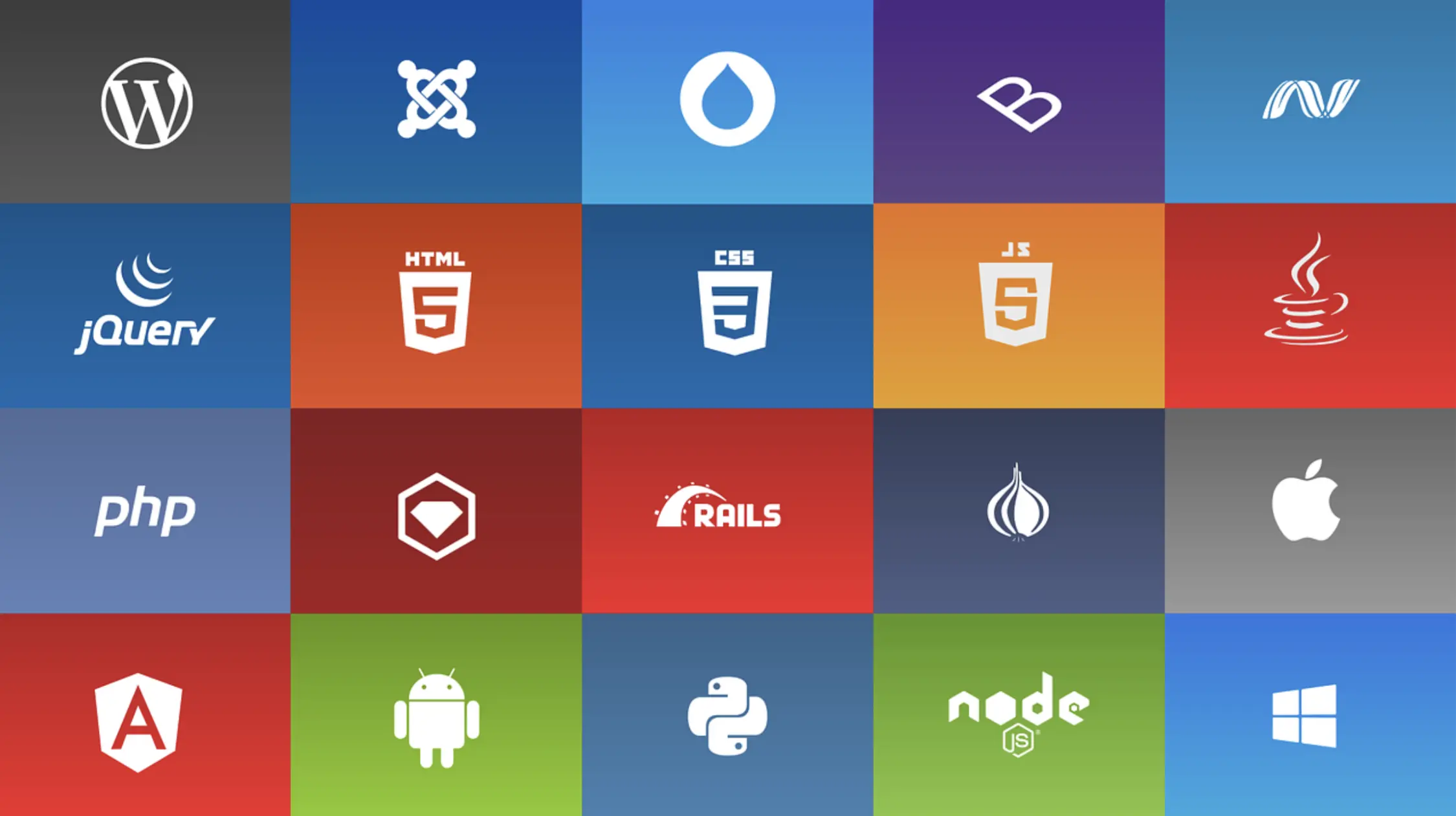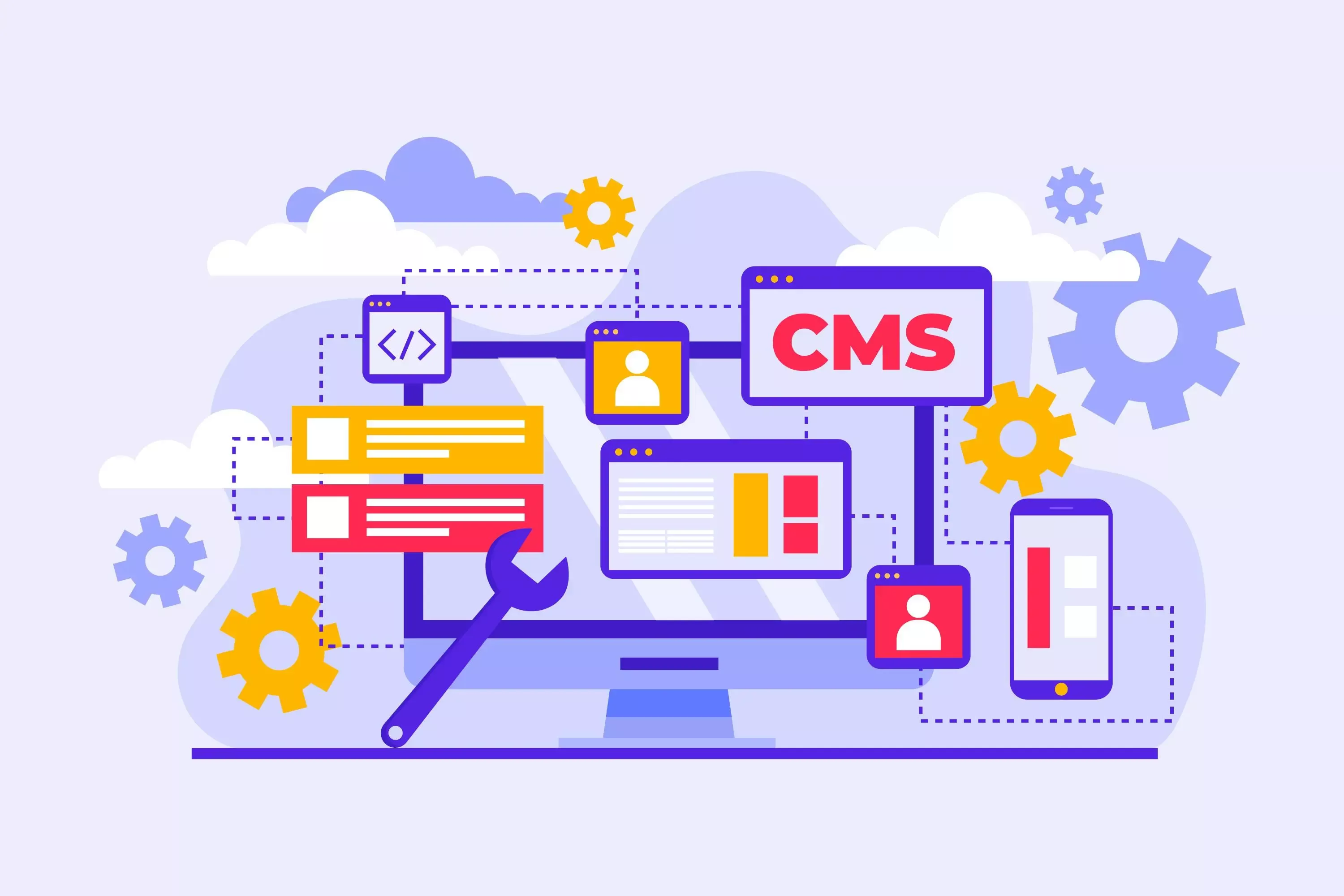WordPress vs Drupal: Choosing the Best CMS for Publishers
-
 By Editorial Staff
By Editorial Staff
-
29 September 23
In the fast-paced world of content management systems (CMS), WordPress and Drupal have emerged as two of the most popular platforms for publishers. Both offer powerful features and capabilities tailored to the specific needs of publishers, but they also have distinct differences that make each platform unique. In this comprehensive guide, we will delve into the differences between WordPress and Drupal, exploring their strengths and weaknesses to help publishers make an informed decision.
Summary
-
WordPress vs Drupal: Choosing the Best CMS for Publishers
- 1. Introduction
- 2. WordPress for Publishers
- 3. Drupal for Publishers
- 4. Key Differences between WordPress and Drupal for Publishers
- 5. Choosing the Best CMS for Your Publishing Needs
- 6. Migration Strategies and Considerations
- 7. Conclusion
1. Introduction
When it comes to managing and publishing content online, choosing the right CMS is crucial for a successful digital presence. WordPress and Drupal are two of the most widely used CMS platforms, each with its own strengths and weaknesses. While WordPress is known for its user-friendly interface and extensive plugin ecosystem, Drupal is renowned for its scalability and customization capabilities.
In this comprehensive guide, we will explore the key differences between WordPress and Drupal, specifically focusing on how each platform caters to the unique needs of publishers. By delving into their features, advantages, and disadvantages, we aim to provide publishers with the information they need to make an informed decision when choosing a CMS.

2. WordPress for Publishers
WordPress has become the go-to CMS for publishers of all sizes. Its simplicity, ease of use, and extensive plugin ecosystem make it an ideal choice for small to medium-sized publishers who want to quickly set up and manage their websites.
Ease of Use and Quick Setup
One of the main advantages of WordPress is its user-friendly interface and intuitive content management system. It offers a straightforward setup process, allowing publishers to get their websites up and running within minutes. The platform provides a visual editor that makes it easy to create and edit content without any coding knowledge.
Customization Options
WordPress offers a wide range of themes and templates that allow publishers to customize the look and feel of their websites. These themes can be easily customized further using the built-in theme editor or by using custom CSS code. Additionally, WordPress provides a vast library of plugins that extend the functionality of the platform, allowing publishers to add features such as social media integration, e-commerce capabilities, and search engine optimization (SEO) tools.
Extensive Plugin Ecosystem
One of the key strengths of WordPress is its extensive plugin ecosystem. With over 55,000 free plugins available in the WordPress Plugin Directory, publishers have access to a wide range of tools and functionalities to enhance their websites. Whether it's adding contact forms, implementing SEO optimizations, or integrating social media sharing buttons, there's a plugin available for almost every need.
SEO Capabilities
WordPress offers several built-in SEO features that help publishers optimize their websites for search engines. It automatically generates search engine-friendly URLs, provides options for adding meta tags and descriptions, and supports the creation of XML sitemaps. Additionally, there are numerous SEO plugins available that offer advanced features such as keyword analysis, content optimization, and SEO auditing.
Community Support
WordPress has a large and active community of developers, designers, and users who contribute to its development and provide support to fellow users. The WordPress community is known for its extensive documentation, forums, and online resources, making it easy for publishers to find answers to their questions and troubleshoot issues.
Examples of Successful Publishers using WordPress
WordPress has been adopted by numerous successful publishers, ranging from small blogs to large media organizations. Some notable examples include:
- The New Yorker: The renowned magazine uses WordPress to power its website, showcasing its ability to handle high traffic and complex content management needs.
- TechCrunch: The leading technology news website relies on WordPress to deliver timely and engaging content to its readers.
- BBC America: The American branch of the British Broadcasting Corporation uses WordPress to manage its website and deliver news, entertainment, and other content to its audience.
Overall, WordPress offers an accessible and feature-rich CMS solution for publishers, making it an excellent choice for those looking for a user-friendly platform with extensive customization options and a vibrant community.
3. Drupal for Publishers
Drupal is a robust CMS that is well-suited for large-scale publishing projects and organizations with complex content management needs. It offers advanced customization, scalability, and security features that make it a popular choice among enterprise-level publishers.
Scalability and Customization
One of the key advantages of Drupal is its ability to handle large and complex websites with ease. It offers advanced customization options, allowing publishers to create highly tailored websites that meet their specific requirements. Drupal's modular architecture and extensive set of contributed modules make it highly flexible and customizable.
Robust Security Features
Drupal is renowned for its strong security features, making it a preferred choice for publishers who prioritize data protection and privacy. The platform has a dedicated security team that regularly releases updates and patches to address any vulnerabilities. Additionally, Drupal offers granular user permission settings, ensuring that only authorized individuals have access to sensitive content and functionalities.
Advanced Content Management
Drupal provides a powerful content management system that allows publishers to create and manage complex content structures, such as multi-level taxonomies, custom content types, and flexible workflows. It also offers a comprehensive set of content editing tools, making it easy for publishers to create rich and engaging content.
Multilingual Capabilities
For publishers with a global audience, Drupal offers robust multilingual capabilities. It supports the creation of multilingual websites, allowing publishers to easily translate content into different languages. Drupal's multilingual features include language detection, translation management, and language-specific URL structures.
Highly Flexible and Extensible
Drupal's modular architecture and extensive set of contributed modules make it highly flexible and extensible. Publishers can leverage these modules to add various functionalities to their websites, such as e-commerce, social media integration, and analytics tracking. Additionally, Drupal's API-first approach allows for seamless integration with other systems and services.
Examples of Successful Publishers using Drupal
Drupal has been adopted by numerous high-profile publishers, particularly in the government, education, and media sectors. Some notable examples include:
- The White House: The official website of the United States government is powered by Drupal, showcasing the platform's ability to handle high traffic and complex content management needs.
- Harvard University: One of the world's most prestigious universities uses Drupal to manage its extensive website and deliver a seamless digital experience to its students, faculty, and staff.
- NASA: The National Aeronautics and Space Administration relies on Drupal to manage its vast amount of content, including news updates, images, and educational resources.
These examples highlight Drupal's scalability, customization capabilities, and suitability for large organizations and complex publishing projects.
4. Key Differences: WordPress and Drupal for Publishers
While both WordPress and Drupal are powerful CMS platforms, they have distinct differences that make each platform suitable for different publishing needs. Here, we will explore some of the key differences between WordPress and Drupal for publishers.
Ease of Use and Learning Curve
WordPress is known for its user-friendly interface and intuitive content management system. It offers a straightforward setup process and a visual editor that makes it easy to create and edit content. On the other hand, Drupal has a steeper learning curve and may require some technical expertise to fully harness its capabilities. While Drupal's interface has improved over the years, it may still be more challenging for non-technical users.
Customization and Scalability
WordPress offers a vast library of themes and plugins that allow for extensive customization of websites. Its plugin ecosystem provides a wide range of functionalities, ranging from e-commerce solutions to social media integration. On the other hand, Drupal's modular architecture and extensive set of contributed modules make it highly customizable and scalable. It allows publishers to create highly tailored websites and handle complex content management needs.
Security and Updates
WordPress is more vulnerable to security threats due to its extensive use of third-party plugins. However, following best practices and implementing security measures can mitigate these vulnerabilities. Drupal, on the other hand, offers robust security features out-of-the-box, making it a preferred choice for publishers who prioritize data protection and privacy.
SEO and Performance
Both WordPress and Drupal offer SEO capabilities, but they differ in terms of built-in features and plugin availability. WordPress provides several built-in SEO tools, such as customizable meta tags and automatically generated XML sitemaps. It also offers a wide range of SEO plugins that provide advanced functionalities. Drupal, on the other hand, offers built-in SEO features like better meta tags, structured data, and canonical URLs. While WordPress has a larger plugin ecosystem dedicated to SEO, Drupal's built-in capabilities are more extensive.
Community Support and Documentation
WordPress has a larger and more active community compared to Drupal. It offers extensive documentation, forums, and online resources, making it easy for publishers to find answers to their questions and troubleshoot issues. Drupal also has a dedicated community, but it may be smaller compared to WordPress. However, Drupal's community is highly knowledgeable and provides excellent support through forums, community documentation, and issue queues.
These key differences should be carefully considered when choosing a CMS for publishing needs. Publishers should evaluate their specific requirements and priorities to determine which platform aligns best with their goals.
5. Choosing the Best CMS for Your Publishing Needs
Choosing the best CMS for your publishing needs involves considering several factors, including the size of your publication, your budget, your content management requirements, and your future growth plans. Here are some key considerations to help you make an informed decision:
Considerations for Small Publishers
If you are a small publisher with limited resources and a relatively simple website, WordPress may be the better choice. Its user-friendly interface, extensive plugin ecosystem, and ease of use make it an excellent option for quickly setting up and managing your website. WordPress provides the necessary tools for content creation, SEO optimization, and social media integration, allowing you to focus on delivering quality content to your audience.
Considerations for Large Publishers
For large publishers with complex content management needs, scalability, and customization requirements, both WordPress and Drupal may be the choice. Drupal's modular architecture and advanced customization options allow for highly tailored websites that can handle large amounts of content and complex workflows. Drupal's robust security features and multilingual capabilities make it suitable for large organizations and global publishers.
WordPress with WordPress VIP hosting is ideal for large publishing outlets because it combines the flexibility and user-friendliness of the WordPress content management system with the robust scalability, security, and performance optimizations offered by VIP hosting, ensuring seamless management of high-traffic websites. This combination empowers publishers to efficiently handle large volumes of content, maintain a reliable online presence, and deliver a superior user experience to their audiences.
Budget and Resources
Consider your budget and resources when choosing a CMS. WordPress offers a range of free themes and plugins, making it a cost-effective option for small publishers. Drupal, on the other hand, may require more technical expertise and development resources, which can impact your budget. Evaluate your financial resources and the level of technical expertise available to determine which CMS is the most viable option for your publishing needs.
Future Growth and Flexibility
Consider your future growth plans when selecting a CMS. WordPress is highly scalable and can accommodate growing websites with ease. Its extensive plugin ecosystem allows for additional functionalities as your needs evolve. However, if you anticipate significant growth and complex content management requirements, Drupal's customization capabilities and scalability may be a better fit for your long-term goals.
Content and Workflow Management
Evaluate your content management and workflow requirements. WordPress provides a user-friendly interface and intuitive content creation tools, making it easy to manage and publish content. However, if you require advanced content management features, such as multi-level taxonomies, custom content types, and flexible workflows, Drupal's advanced content management capabilities may better suit your needs.
By carefully considering these factors, you can choose the CMS that best aligns with your publishing goals and supports your long-term growth plans.
6. Migration Strategies and Considerations
Migrating from one CMS to another can be a complex process, but with careful planning and execution, it can be done successfully. Whether you are considering migrating from WordPress to Drupal or vice versa, here are some strategies and considerations to keep in mind:
Migrating from WordPress to Drupal
If you are migrating from WordPress to Drupal, it's essential to plan the migration process carefully. Start by identifying the content and functionality that needs to be migrated and create a detailed migration plan. There are several migration tools and services available that can assist with the process. Ensure that you have a backup of your WordPress site before initiating the migration.
When migrating from WordPress to Drupal, pay special attention to data migration and SEO considerations. Ensure that your content is properly mapped and transferred to the new CMS, including images, URLs, and metadata. Redirects should be set up to ensure a smooth transition and avoid any negative impact on SEO rankings.
Migrating from Drupal to WordPress
If you are migrating from Drupal to WordPress, the process will involve exporting your Drupal content and importing it into WordPress. Start by exporting your Drupal content, including articles, pages, and media files. Some migration tools and plugins can assist with the data transfer. Import the content into your WordPress installation and ensure that it is properly mapped and formatted.
Similar to migrating from WordPress to Drupal, pay attention to SEO considerations when migrating from Drupal to WordPress. Ensure that your URLs, metadata, and redirects are properly set up to maintain your SEO rankings. Perform thorough testing after the migration to ensure that all content and functionalities are working as expected.
Planning and executing a CMS migration requires careful attention to detail and thorough testing to ensure a smooth transition. It's recommended to seek the assistance of experienced developers or migration experts to guide you through the process and mitigate any potential risks.
Whether you are migrating from Drupal to WordPress or the other way around, having a reliable WordPress development agency such as WPRiders is of essence. The agency will plan the migration process, will analyze the content type, and how it will map between the two systems and will do the migration itself.
7. Conclusion
Choosing the right CMS for your publishing needs is a critical decision that can significantly impact your digital presence. WordPress and Drupal are both powerful CMS platforms, each with its own strengths and weaknesses. WordPress is known for its user-friendly interface, extensive plugin ecosystem, and ease of use, making it an excellent choice for small to medium-sized publishers. Drupal, on the other hand, offers advanced customization, scalability, and security features, making it suitable for large publishers with complex content management needs.
By carefully evaluating your specific requirements, considering factors such as ease of use, customization options, security, community support, and scalability, you can make an informed decision when choosing a CMS for your publishing needs. Whether you opt for WordPress or Drupal, both platforms offer powerful tools and features that can help you create and manage compelling content for your audience.
In the realm of publishing, WordPress boasts effortless usability straight from the start. However, for those aspiring to elevate their publishing platform to a more sophisticated level, especially in the realm of intricate publishing websites, our top recommendation is to collaborate with WPRiders. They specialize in tailoring custom solutions that result in highly efficient and high-performance publishing websites.
Remember, the choice between WordPress and Drupal ultimately depends on your unique publishing goals, resources, and technical expertise. By understanding the strengths and weaknesses of each platform and considering your specific requirements, you can select the CMS that best aligns with your publishing needs and supports your long-term growth.
| Recommended Software | Category | Why Choose? | Signup URL |
|---|---|---|---|
| Setupad | Website Monetization | High CPMs, On time payments | Signup here |
| Refinery89 | Website Monetization | Easy installation, High CPMs | Signup here |

Editorial Staff at Publisher Growth is a team of blogging and AdTech experts adept at creating how-to, tutorials, listings, and reviews that can publishers run their online businesses in a better way.
View All PostsOur Editors’ Pick:
Browse these amazing publisher monetization tools handpicked by our team of editors

























